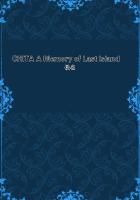The friends of Luther were terrified and distressed. Knowing the prejudice and enmity against him, they feared that even his safe-conduct would not be respected, and they entreated him not to imperil his life. He replied: "The papists do not desire my coming to Worms, but my condemnation and my death. It matters not. Pray not for me, but for the word of God. . . . Christ will give me His Spirit to overcome these ministers of error. I despise them during my life; I shall triumph over them by my death.
They are busy at Worms about compelling me to retract; and this shall be my retraction: I said formerly that the pope was Christ's vicar; now I assert that he is our Lord's adversary, and the devil's apostle."--Ibid., b. 7, ch.
6.
Luther was not to make his perilous journey alone. Besides the imperial messenger, three of his firmest friends determined to accompany him.
Melanchthon earnestly desired to join them. His heart was knit to Luther's, and he yearned to follow him, if need be, to prison or to death. But his entreaties were denied. Should Luther perish, the hopes of the Reformation must center upon his youthful colaborer. Said the Reformer as he parted from Melanchthon: "If I do not return, and my enemies put me to death, continue to teach, and stand fast in the truth. Labor in my stead. . . . If you survive, my death will be of little consequence."-- Ibid., b. 7, ch. 7.
Students and citizens who had gathered to witness Luther's departure were deeply moved. A multitude whose hearts had been touched by the gospel, bade him farewell with weeping. Thus the Reformer and his companions set out from Wittenberg.
On the journey they saw that the minds of the people were oppressed by gloomy forebodings. At some towns no honors were proffered them. As they stopped for the night, a friendly priest expressed his fears by holding up before Luther the portrait of an Italian reformer who had suffered martyrdom. The next day they learned that Luther's writings had been condemned at Worms. Imperial messengers were proclaiming the emperor's decree and calling upon the people to bring the proscribed works to the magistrates. The herald, fearing for Luther's safety at the council, and thinking that already his resolution might be shaken, asked if he still wished to go forward. He answered: "Although interdicted in every city, Ishall go on."--Ibid., b. 7, ch. 7.
At Erfurt, Luther was received with honor. Surrounded by admiring crowds, he passed through the streets that he had often traversed with his beggar's wallet. He visited his convent cell, and thought upon the struggles through which the light now flooding Germany had been shed upon his soul. He was urged to preach. This he had been forbidden to do, but the herald granted him permission, and the friar who had once been made the drudge of the convent, now entered the pulpit.
To a crowded assembly he spoke from the words of Christ, "Peace be unto you." "Philosophers, doctors, and writers," he said, "have endeavored to teach men the way to obtain everlasting life, and they have not succeeded. Iwill now tell it to you: . . . God has raised one Man from the dead, the Lord Jesus Christ, that He might destroy death, extirpate sin, and shut the gates of hell. This is the work of salvation. . . . Christ has vanquished! this is the joyful news; and we are saved by His work, and not by our own. .
. . Our Lord Jesus Christ said, 'Peace be unto you; behold My hands;' that is to say, Behold, O man! it is I, I alone, who have taken away thy sin, and ransomed thee; and now thou hast peace, saith the Lord."He continued, showing that true faith will be manifested by a holy life.
"Since God has saved us, let us so order our works that they may be acceptable to Him. Art thou rich? let thy goods administer to the necessities of the poor. Art thou poor? let thy services be acceptable to the rich. If thy labor is useful to thyself alone, the service that thou pretendest to render unto God is a lie."--Ibid., b. 7, ch. 7.
The people listened as if spellbound. The bread of life was broken to those starving souls. Christ was lifted up before them as above popes, legates, emperors, and kings. Luther made no reference to his own perilous position.
He did not seek to make himself the object of thought or sympathy. In the contemplation of Christ he had lost sight of self. He hid behind the Man of Calvary, seeking only to present Jesus as the sinner's Redeemer.
As the Reformer proceeded on his journey, he was everywhere regarded with great interest. An eager multitude thronged about him, and friendly voices warned him of the purpose of the Romanists. "They will burn you," said some, "and reduce your body to ashes, as they did with John Huss." Luther answered, "Though they should kindle a fire all the way from Worms to Wittenberg, the flames of which reached to heaven, I would walk through it in the name of the Lord; I would appear before them; I would enter the jaws of this behemoth, and break his teeth, confessing the Lord Jesus Christ."--Ibid., b. 7, ch. 7.
The news of his approach to Worms created great commotion. His friends trembled for his safety; his enemies feared for the success of their cause.
Strenuous efforts were made to dissuade him from entering the city. At the instigation of the papists he was urged to repair to the castle of a friendly knight, where, it was declared, all difficulties could be amicably adjusted. Friends endeavored to excite his fears by describing the dangers that threatened him. All their efforts failed. Luther, still unshaken, declared: "Even should there be as many devils in Worms as tiles on the housetops, still I would enter it."--Ibid., b. 7, ch. 7.
Upon his arrival at Worms, a vast crowd flocked to the gates to welcome him.















